This article explains the steps to change the time (clock) to 12h or 24h format in Ubuntu Linux.
Ubuntu Linux default displays the system time in a 24-hour or military time format. If you prefer to read your system clock in a 12-hour format, continue below to learn how to change that.
Whatever time or clock format you choose will appear on the Top bar. It may also appear in applications and documents you create unless you override the format in individual programs.
Choose whether the clock displays 12h or 24h format
As mentioned above, if Ubuntu Linux displays its system clock in a 24-hour format and you want to change it to a 12-hour format, the steps below show you how.
Ubuntu Linux has a centralized location for the majority of its settings. From system configurations to creating new users and updating, all can be done from the System Settings panel.
To get to System Settings, open the Activities overview and start typing Settings.
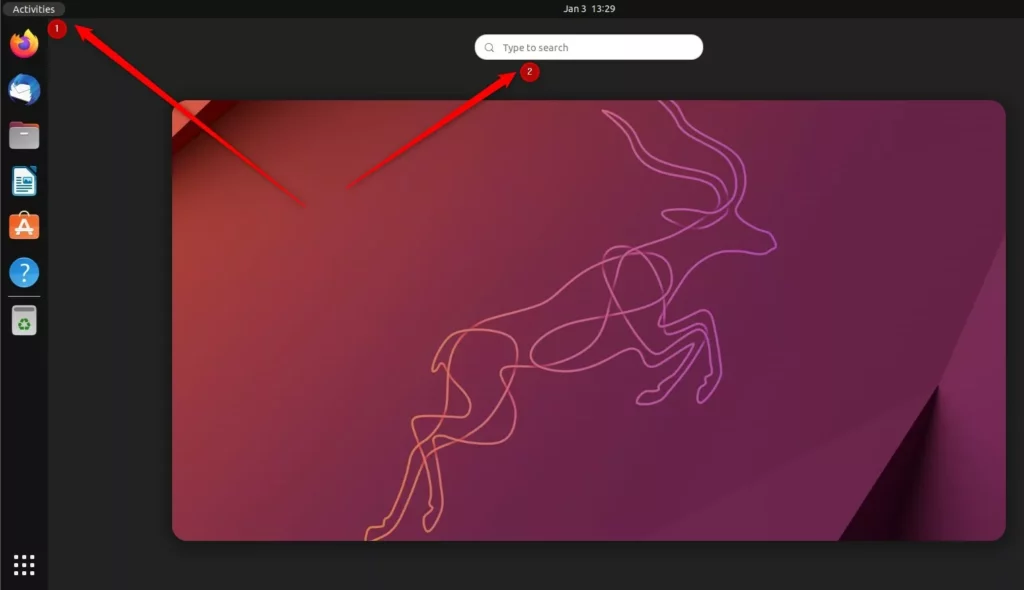
Alternatively, click on the System menu at the top-right corner of the top bar on your desktop.
On the System menu, select Settings, as highlighted below.
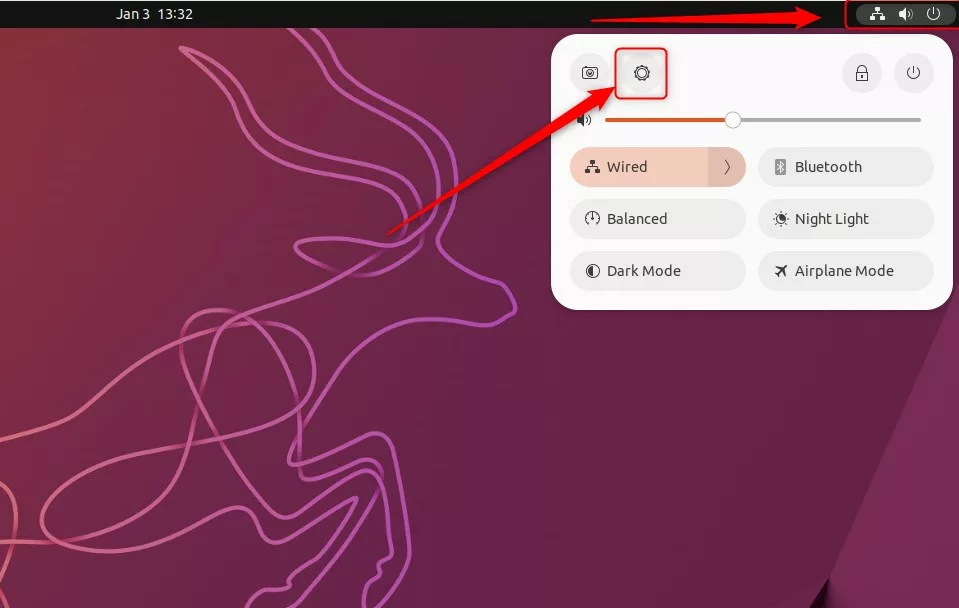
In the Settings app, select Date & Time on the left menu.
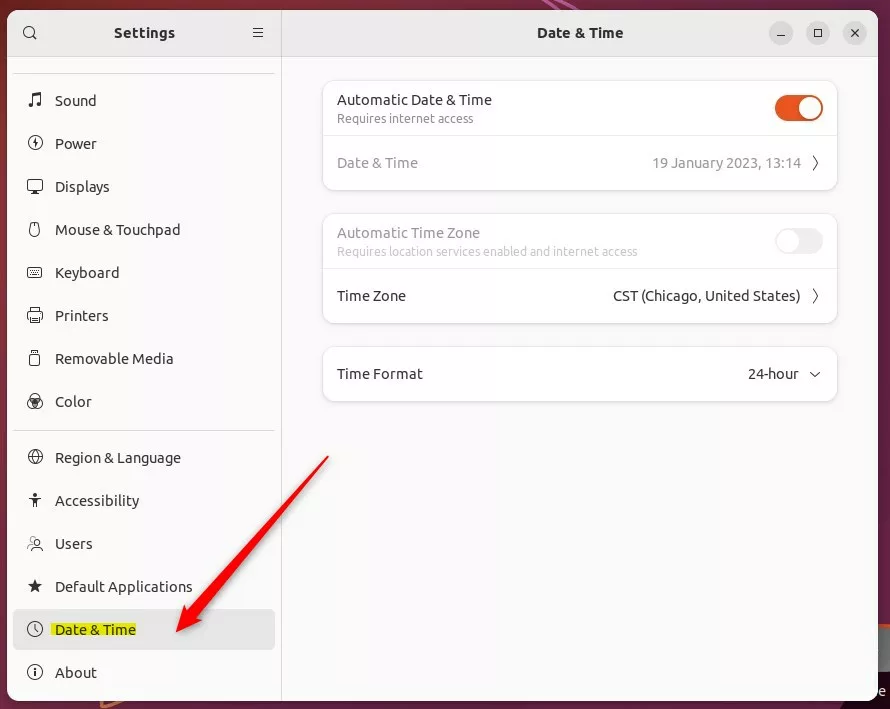
On the System Settings -> Date & Time settings panel, next to the Time Format section, use the drop-down option to choose a format:
- 24-hour
- AM/PM
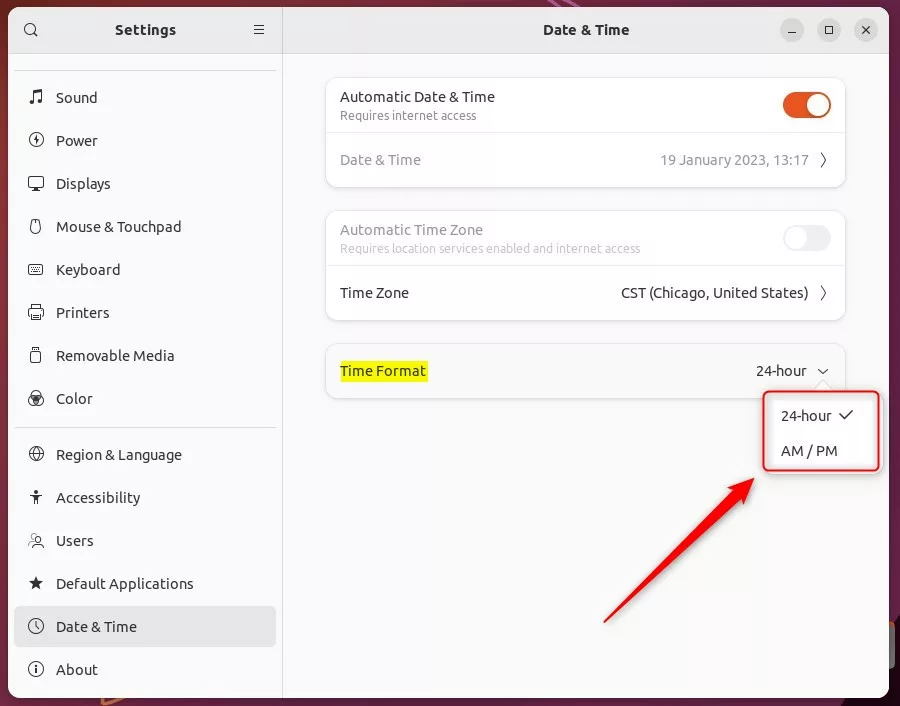
The option you choose will automatically apply to your desktop.
Change system time format using the command terminal console
Another way to change the system clock or time format is via the command line terminal console.
Like many other Linux distributions, most system settings changes are done using the command terminal. Naturally, most Linux users should be familiar with the command terminal.
First, open the Terminal app in Ubuntu Linux.
You can do that by pressing the Super key (or Windows key) to show the Overview screen. Then use the search box to search for ‘Terminal. ‘
Select the Terminal app to launch.
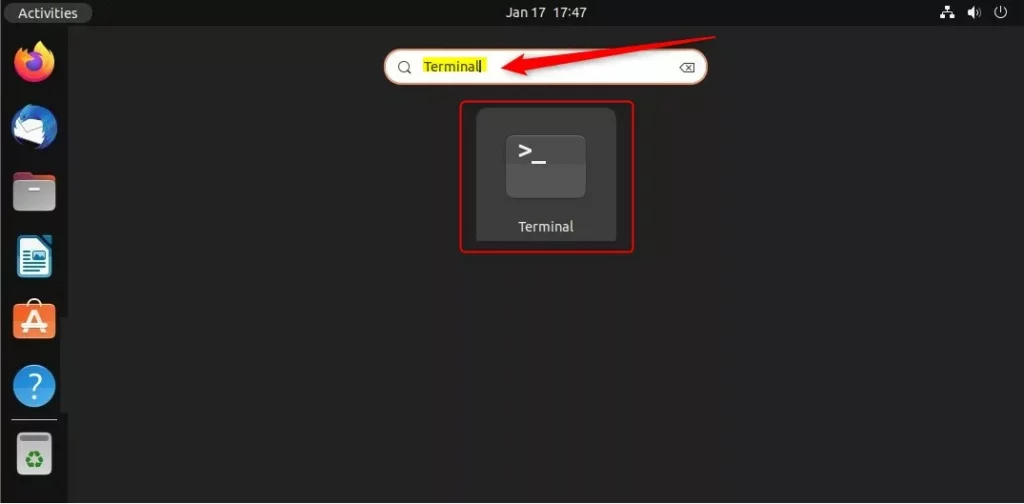
Alternatively, press the keyboard shortcut (CTRL + ALT + T) on your keyboard to launch the Terminal app.
When the Terminal app opens, type the commands below to display a 12-hour clock format.
gsettings set org.gnome.desktop.interface clock-format 12h
To reverse and use a 24-hour clock format, run the commands below.
gsettings set org.gnome.desktop.interface clock-format 24h
Change system time format using the Dconf Editor
You can also use Dconf Editor to make typical system changes if you can’t use the command Terminal app.
If you are familiar with Windows, you know about Windows Registry Editor.
Ubuntu Linux doesn’t have a registry database to configure hidden system settings. Howerver, Ubuntu Linux uses the Dconf Editor tool to change low-level system configurations and settings.
You can call it a Ubuntu Linux Registry Editor because it provides similar functionality without a massive Windows system database.
To use Dconf Editor, you must first install it since it doesn’t come with Ubuntu Linux.
Read the post below to learn how to install software on Ubuntu Linux.
How to add or remove software on Ubuntu Linux
In the Ubuntu Software app, search for Dconf Editor to install.

After installing and launching the Dconf Editor app, navigate to the path below:
org -> gnome -> desktop -> interface -> clock-format
On the Clock-Format Dconf settings pane, toggle the “Use default value” button to the Off position.
Then use the Custom value option to choose a 12h or 24h time format.
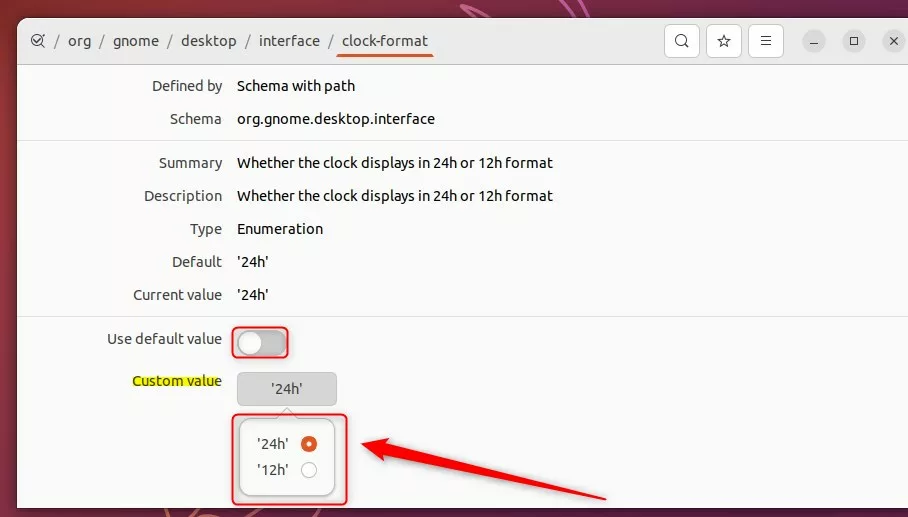
That should do it!
Conclusion:
- Changing the time or clock format on Ubuntu Linux is possible through various methods, such as System Settings, the command terminal console, and Dconf Editor.
- The time format can be toggled between 12 and 24 hours to suit personal preferences.
- Users can modify the clock format through intuitive graphical interfaces or command line instructions, providing flexibility and customization options.
- Dconf Editor offers a deeper level of system configuration, akin to the functionality of the Windows Registry Editor in Windows operating systems.
- Readers are encouraged to provide feedback or suggestions via the comment form for further improvements or augmentations to the presented information.

Leave a Reply